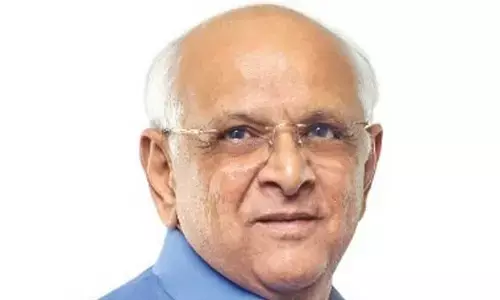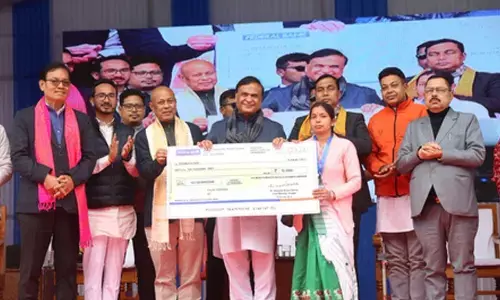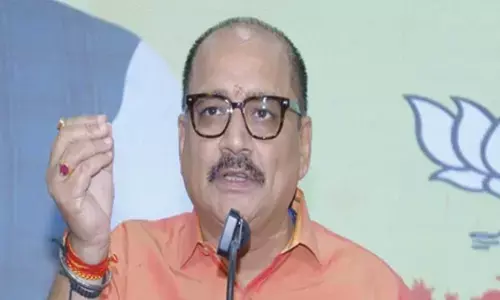Dependable ally

President Pranab Mukherjee’s presence at Russia’s Victory Day Parade in Moscow to commemorate 70th anniversary of the end of the World War II served multiple purposes. For one, it was a message to our men in uniform that the nation cares about their sacrifices made during the two World Wars fought before independence.
Pranab’s Moscow visit has placed bilateral ties on a firmer footing
President Pranab Mukherjee’s presence at Russia’s Victory Day Parade in Moscow to commemorate 70th anniversary of the end of the World War II served multiple purposes. For one, it was a message to our men in uniform that the nation cares about their sacrifices made during the two World Wars fought before independence.
Fought for freedom and democracy, it was as much India’s war and their sacrifices did not go in vain. Coming from the Supreme Commander, that was the highest tribute paid, albeit on a foreign land, in a global context. The participation in the parade by the 75-strong Indian Army contingent added not just colour, but carried military and diplomatic significance.

Mukherjee, the seasoned statesman has himself been an ace diplomat having served twice as the external affairs minister. His Moscow visit, besides the annual summits that India and Russia have had since the year 2000, has placed bilateral ties on a firmer footing.
A balancing act was needed amidst the flurry of visits by US President Barack Obama, with Japan’s PM Abe and the two summits, one in India and the one just begun in Beijing, with Chinese President Xi Jinping. That India is getting closer to the West is a perception, whether right or not, cannot be avoided. Also can’t be avoided is the fact that the Indo-Russian trade is low compared to India’s trade ties with others. Russians are keen on “Make in India.”
This should get bolstered by two visits to Russia by Prime Minister Narendra Modi in July and November. Still more significant is the greater Indian cooperation with the West in the purchase of armaments that was for long a Russian preserve. Russia is looking for other markets, including Pakistan. It is a sore point with India. Mukherjee’s visit should help strike a balance in perceptions and actions when he emphasised that Russia is and shall remain a ‘dependable’ defence ally of India.
At the global level, the message was bolder. The Moscow event was almost entirely boycotted by the West over Russia’s action in Ukraine. Besides imposing economic sanctions, the US-led efforts to hold down the global oil prices is hurting Russia the most. At one level, presence of the Chinese President reinforced the role of the India-Russia-China troika.
At another, there was a clear expression of solidarity with Moscow and yet another, the message to the West that disputes are best resolved by dialogue, not coercion that the boycott represents. The Victory Day was, and should remain, a collective global endeavour for world peace.
The point was made by a leading European, Germany’s Angela Merkel, who visited Moscow later. And after skipping the V-Day celebrations, US Secretary of State John Kerry, too, visited Moscow. As both these Western gestures are born of inherent diplomatic compulsions, one wonders what the boycott was all about.




